Exams don't need to be scary or stressful. Things run smoothly when:
- students are well prepared and
- parents are fully informed.
This can turn nerves into adrenaline and help the student perform at their best. Consult the checklist below and make sure you have everything you will need.
The following checklist is for students sitting practical exams.
If you are sitting a written exam our Written Exam Day Checklist will help in your exam preparation and ensure you are ready to do your best in your exam.
Print your Notice of Examination
AMEB (NSW) does not accept digital copies of the Notice of Examination. Bring a printed copy of the notice to the exam.
The enrolling person must give the notice to the candidate before exam day. They can download replacement Notices of Examination from AMEB Connect.
You should fill out your Notice of Examination before you arrive at the venue.
If you are sitting for a:
- For Leisure exam: circle Aural Tests OR Sight Reading
- Musicianship or Music Craft written exam: you will have TWO Notices to bring to your exam, one for the aural component and one for the written component.
Read your Notice of Examination carefully
Check the:
- date
- time
- venue address and building level
of your exam. Your exam may be at a different venue from your previous exam.
Check for transport delays
Aim to arrive at the exam address at least 20 minutes before your exam time. Many other students may have their exams after you. Candidates who arrive after their scheduled time cannot expect to be examined.
Check the Transport NSW website the day before and morning of your exam. Allow extra time for delays caused by traffic issues or trackwork on your train line.
If you are driving to your exam check for:
- special events or
- increased parking restrictions
that may cause travel delays.
Check Google Maps for information about your:
- nearest train stations and
- parking
at your exam venue.
Confirm with your accompanist
Give your accompanist a copy of your Notice of Examination so they can find you on the day of your exam. The enrolling person can email them a copy from AMEB Connect. It is also a good idea to:
- make sure the accompanist and student have each other's mobile numbers
- call the accompanist to confirm before the day of the exam
- bring a back-up copy of your accompanist's music.
Bring your music
Mark your pieces with coloured tags or post-it notes so you can access each piece quickly.
Photocopies of music are only allowed in AMEB exam rooms if the candidate also brings the original music.
Your examiner needs your music:
- for the general knowledge section of your exam even if you have your pieces memorised
- when an Own Choice piece for a Repertoire exam is not in the syllabus.
Rub out pencil marks
Remove all "general knowledge" pencil marks from your music before you get to the venue. Other marks may stay.
Pack your instrument
This sounds obvious, but sometimes instruments get left behind! Make a list with your teacher outlining everything you should take to your exam. Pack the night before.
Important accessories
Depending upon your instrument don’t forget:
- spare strings, resin, reeds, valve oil, cloth
- cello rock stop or rubber end pin
- double bass stool
- footstool or pedal extender.
Allow time to tune and warm up
Assemble and tune your instrument before you enter the exam room. There is no time allotted for this in the exam.
Most venues do not provide a warm-up room, so it is a good idea to warm up where you are able to do so before checking in.
Check and pack your recorded accompaniment
If you are using AMEB recorded accompaniments you need to bring your own CD player or similar device. Check that the device is working, charged and the volume is set to a suitable level.
Bring proof of identification if you are sitting a Grade 8 or above exam
For Grade 8 and above exams in music or speech and drama students must provide photo identification to the examiner.
Students may provide a student ID card, drivers licence or passport.
If students do not show identification to the examiner their qualification will not be verified by AMEB (NSW) if applying for bonus ATAR points, Elite Performers schemes, music scholarships or other applications.
Smart casual clothes
AMEB (NSW) exams follow a formal structure. Please consider the occasion and dress as you would for a performance.
A few more things
- Photography and recording of any kind is not permitted during AMEB (NSW) exams.
- Except for P Plate piano exams (which allow a parent/teacher to sit in), candidates enter the exam room unaccompanied.
- Accompanists will be called into the exam room by the examiner only for the specific exam sections they are required for.
- Page turners can only be in the room during those pieces for which they are required.
- Due to limited space and COVID-19 social distancing restrictions, only one person can enter the waiting areas at AMEB (NSW) exam venues with the candidate.








